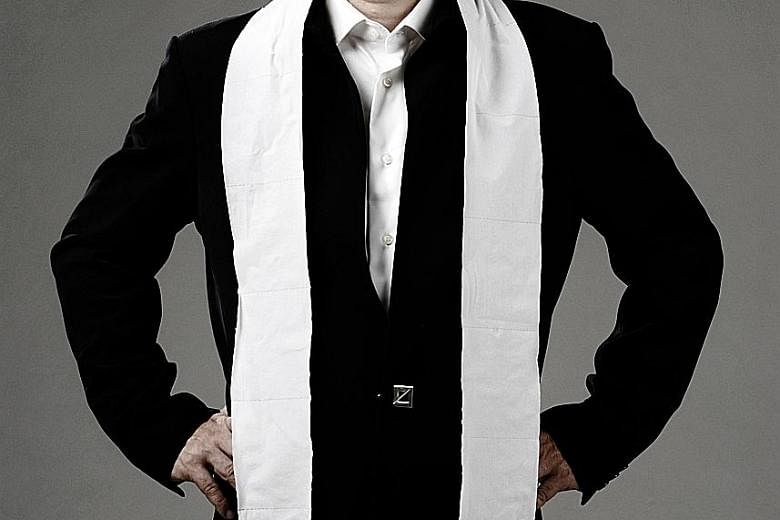Growing up in a poor kampung home and having to deal with his family's night-soil bucket were what inspired Jack Sim to set up the World Toilet Organisation (WTO), which campaigns for better sanitation standards in toilets worldwide.
But his stomach-churning description of the family's fly-ridden latrine sets him a world away from the plush surroundings at the United Nations General Assembly Hall in New York, where he found himself two weeks ago.
He was among 17 innovators and change makers to receive an award at the international UN-supported Novus Summit on sustainable development. Other recipients included Ms Anousheh Ansari, the first female private space explorer, UN Women deputy executive director Lakshmi Puri and Mr Matthew Bishop, the New York bureau chief and United States business editor of The Economist news magazine.
For Mr Sim, the prestige is linked with a less glamorous subject. Open latrines like his family's in the 1960s have disappeared from Singapore, but a billion people worldwide still have to defecate in the open.
The former businessman, who founded WTO in 2001, hopes his latest accolade will go towards further dismantling the taboo around his subject. "All the media, visibility and recognition I get from this, I must accord to the mission," he said.
He made his mark on the world map in 2013 when the UN General Assembly agreed to adopt a resolution to mark Nov 19 as World Toilet Day. He first suggested the idea to the Ministry of Foreign Affairs about four years earlier.
Proper bathroom sanitation is no trivial matter - a third of the world's population still lacks access to such facilities. Diarrhoeal diseases caused by poor sanitation kill more children every year than Aids, malaria and measles combined.
A lack of toilets also threatens the safety of women in slums and rural areas, especially if they have to go alone late at night to toilets outside.
WTO has spurred initiatives to tackle these problems, such as SaniShop, a social enterprise franchise that trains less developed communities to produce and sell their own pour-flush toilets.
In November last year, it started a World Toilet College in India to educate locals from all walks of life - from sanitation workers to government officials - about toilet maintenance and the importance of good hygiene. The college aims to educate 100,000 people in Rishikesh, New Delhi and Andhra Pradesh.
Mr Sim is also working with the Andhra Pradesh state government to build six million toilets there.
He estimates he has visited more than 50 countries in his efforts to effect change, making his mark in places as far-flung as Samoa.
"They made me chief of this village called Falevao, which means 'grass hut'. That's a euphemism for 'toilet'. So really they made me village chief of Toilet. That's great."
The father of four spends about 60 per cent of his time overseas championing his causes. He is now in San Francisco, halfway through a 10-week scholarship programme by Silicon Valley think-tank Singularity University.
The programme brings together 80 people from 40 countries, of whom he is the oldest at 59. Each must take along a project that could improve the lives of at least a billion people.
Mr Sim is working on the Base-of-Pyramid (BoP) Hub, an initiative he started in 2011 to tackle poverty. His vision is to connect providers of solutions - solar lamps, water filters, irrigation systems - across countries so these solutions can be efficiently exported.
"All the solutions that people need have already been found," he said. "But they're not shared."
To ground these ideas, he is building a BoP Design Centre, whose 65,000 sq ft building in Ubi Road will be completed in July next year. He has taken a loan of $8 million and sunk $1 million of his own money into the project. His older brother, retired businessman William Sim, 64, put in another $1 million.
"That's the last of my money," said the younger Mr Sim. "So this had better work, or I'll be in trouble."
However, he has no regrets. "If we are all given an average of 80 years of life, at 59, I now have about 7,500 days left on this planet. I don't want them to be futile."


